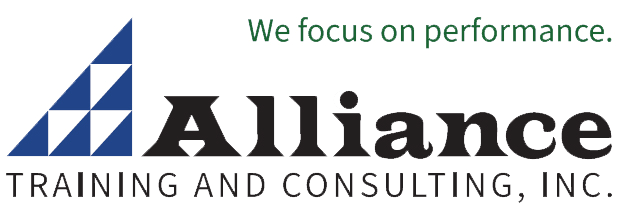Performance Appraisals that Work
By: Dale Mask
Most employees and managers look forward to performance appraisals about as much as going to the dentist. However, performance appraisals done right can be motivational and meaningful experiences that build performance and improve morale.
In order for the appraisal system to work, managers must remember the performance appraisal is about the future, not the past.
Too often the focus of the appraisal is on the rating and the rating’s justification. Rating a person’s performance is looking at what they have done over the past performance period. Try shifting the focus from what has happened in the past to what will happen in the future. The rating then simply establishes a starting point relative to achieving performance objectives in the future.
During the appraisal interview, keep three percentages in mind:
-
15% - Spend about 15% of the interview identifying the ratings themselves
-
25% - Spend about 25% of the interview establishing performance goals for the future
-
60% - Spend about 60% of the time developing a plan of action to achieve the newly established goals
With this approach, one part of the evaluation is the rating; but the significance of the conversation is shifted to how managers will work with the employee to improve performance. The focus is to the future.
For this process to work, managers must avoid rating surprises during the appraisal. When the employee comes to the appraisal session, they should already have a good idea of what their ratings will be. This requires feedback during the performance appraisal period. Think of the evaluation as being kind of like bowling. Remember the last time you went bowling? Did you bowl the whole game and then ask, “Well how did I do?” No, you were checking the score each and every frame. It works the same way with appraisals. Give the employee ongoing feedback during the performance period to avoid surprises at the appraisal session.
Use interim reviews to maximize the success of the developmental plan. Interim reviews go beyond day-to-day coaching. The interim review is not a formal performance appraisal where you will cover all aspects of performance. It is simply a 15 to 20 minute informal meeting with the employee. During this interim review, you review progress on goals set during the last appraisal session, surface performance issues as needed, and make necessary adjustments to the employee’s developmental plan. The interim review is a good reminder to the employee as to where they are relative to the issues and objectives established for this performance appraisal period.
Employees are often evaluated formally once a year. In this environment, do interim appraisals on a quarterly basis. If in the current system employees are evaluated twice per year, do the interim review at the halfway point of the appraisal period.
Without interim reviews, the typical employee sees the evaluation form once per year. It is then filed away never to be seen again until the next performance appraisal rolls around. With that approach, how can we expect employees to see the evaluation as a meaningful developmental tool? How can we expect employees to see the goals or rating criteria as meaningful if we only relate to them once a year? If the boss is not relating to the criteria listed on the evaluation form during the performance period, it must not be important. If it is not important to the boss, why would the employee see it as important?
Using interim appraisals is a simple and effective method to make the evaluation criteria more meaningful and avoid rating surprises during the performance appraisal session.
When it comes to the actual rating, many organizations have moved from using a five-point performance rating scale to a simple three-point system. This change makes it more acceptable for an employee to be rated an average performer. The three-point system also makes it easier for managers to identify the people who genuinely deserve to be rated as top performers.
By using a three-point system, the performance discussion can shift to the developmental process.
With a five-point performance rating scale, managers often spend much of the appraisal trying to explain the difference between a “4” and a “5” rating. The employee is often upset if they did not get a least a rating of “4.” Plus, what one manager might call a “3” another manager might relate to it as a “4.”
The 3-point system can help overcome inconsistent ratings and feelings of unfairness.
Using interim reviews and simplifying the rating process are keys to a more successful appraisal process. However, communication skills are critical in the appraisal session itself. Managers must be trained on how to coach and how to give criticism in a positive manner. Without training in these areas, an evaluation session intended to motivate an employee can be very demoralizing. The pain of going to the dentist can last a few hours. The pain of a poorly done performance appraisal can last for months. Most of us have experienced a performance appraisal that we felt was somewhat unfair and we still remember how it felt.
The performance appraisal is designed to be a motivational experience building people to higher levels of productivity. If it is going to be what it is supposed to be, make certain managers recognize the performance appraisal as a developmental session - not a disciplinary session. Even in the worst performance cases, the evaluation session is not to be used to discipline the employee for poor performance in the past. The performance appraisal is simply saying, “Here is where the performance is now. Up there is where we want it to be. Now, let’s work together to develop a plan to get performance from where it is to where we want it to be.”
Using these approaches, the performance appraisal system can work as a meaningful and motivational tool to develop employees.
© 2015 Alliance Training and Consulting, Inc.
View our Establishing Clear Performance Expectations Training Course
